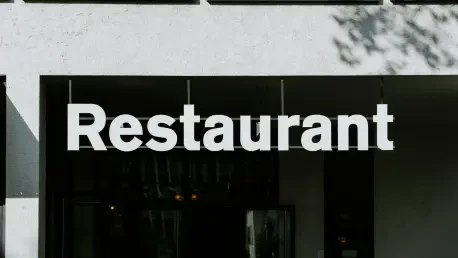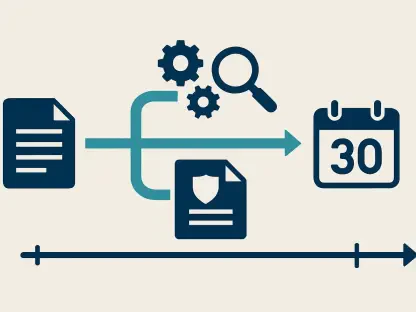The legislative efforts in South Carolina have turned a keen eye towards the challenges faced by bars and restaurants, particularly focusing on the escalating costs of insurance. This movement aims to alleviate the financial strain that has stymied business growth within the state. A 2017 mandate required these establishments to maintain a minimum of $1 million in liability coverage due to serving alcohol. This stiff requirement significantly influenced insurance premiums, resulting in many insurers withdrawing from the market altogether. As a result, businesses found themselves in a precarious position, unable to afford the soaring costs, thus curbing their potential for expansion or even establishment. Recently, the Senate approved a compromise bill with a 41-1 vote, aimed to offer relief by providing more flexible insurance options. With the bill now awaiting the governor’s signature, the question remains: will these legislative changes significantly impact the sustainability of restaurants and bars in South Carolina?
Legislative Background and Motivation
The South Carolina legislative backdrop is marked by the 2017 law requiring substantial insurance coverage, which unintentionally stifled the growth of bars and dining establishments. Initially introduced to ensure accountability, the legislation inadvertently created a financial barrier for businesses that traditionally rely on slimmer profit margins. The sheer cost of maintaining such high levels of insurance coverage led to insurers pulling out of the market, overwhelming establishments with crippling premiums. In the face of market exits by insurers, many business owners have expressed their struggles, resulting in frenzied calls for reform. Thus, the growing necessity for legislative intervention prompted lawmakers to examine and tackle the root causes behind these challenges. Many businesses reported not only an inability to expand but also the deterrent effect on aspiring business owners who wished to enter the market. The latest Senate actions reflect a concerted effort by South Carolina’s legislature to address the consequences of the old mandate that endangered small and medium-sized businesses.
Key Components of the New Bill
The compromise bill currently awaiting the governor’s nod introduces alternatives that may assist bars and restaurants in substantially reducing insurance costs. By allowing businesses to adopt proactive measures such as specialized alcohol training for employees and the use of advanced ID verification technology, the legislation aims to create pathways for lowering the mandatory insurance threshold. These measures are suggested with the intention of making policies more financially viable. By easing coverage requirements, the law endeavors to alleviate some of the fiscal pressure experienced by establishments that serve alcohol. With such changes, the hope is to invigorate the market, ensuring that more businesses remain operational and fewer will feel the adverse effects of mounting insurance expenditures. If successful, the bill could significantly lower financial hurdles, allowing a broader spectrum of business owners to operate under more equitable conditions. By promoting a more manageable business environment, the bill seeks to rectify the adverse impacts of past legislation.
Liability Rule Reform
Addressing liability rules forms a critical component of the new bill, introducing significant changes in how responsibility and fault are assigned. Historically, establishments have often faced total financial liability in personal injury cases, sometimes irrespective of their actual level of fault. Such practices have left businesses, primarily those in the hospitality sector, vulnerable to unsustainable legal challenges, regardless of their fault percentage. The revised bill proposes a system where liability aligns more closely with proportionality, distributing financial responsibility relative to the degree of fault. This more nuanced approach attempts to foster a fairer legal framework, offering businesses protection against being held disproportionately accountable. By advancing proportional liability, the legislation acknowledges and rectifies the previous systems’ inequities, portraying a balanced method of adjudicating responsibility. This reassessment is intended to provide business owners with peace of mind, knowing that their financial liability will reasonably reflect their actual involvement in incidents.
Support and Critique from Legislators
Legislators’ responses to the new bill reveal a blend of support, tempered with cautious critique. Across the political spectrum, there appears to be broad recognition of the bill’s potential in ameliorating pressing business challenges and reducing insurance burdens. However, some quarters have voiced concerns about the lack of industry insight and testimony during the legislative journey, sparking debates about the depth of consultation with key stakeholders. Representative Justin Bamberg, among others, articulated skepticism about realizing immediate reductions in insurance premiums and raised flags about the scarce involvement from industry experts in refining the bill. Questions were raised regarding transparency and the adequacy of data available on insurers’ pricing considerations. These critiques highlight an ongoing need to engage deeply with all parties affected by the legislation, ensuring the most effective application and outcomes for the bill. Despite the optimism surrounding the legislative achievements, some remain cautious regarding the bill’s long-term efficacy without more exhaustive industry collaboration.
Legislative Outlook and Future Reforms
Despite the legislative win represented by this bill, an overarching acknowledgment prevails—that it serves merely as a stepping stone toward broader, continuing reforms. The realization among lawmakers is clear: further refinements are necessary to create a sustainable business environment. Senate Majority Leader Shane Massey has explicitly acknowledged this sentiment, suggesting that while this bill marks a significant milestone, ongoing efforts are indispensable. The future legislative agenda may explore additional strategies to tweak insurance practices further while reinforcing the economic landscape for businesses throughout South Carolina. Even with this progress, the notion that more comprehensive reform is essential remains prevalent, as legislators prepare for continued endeavors to reduce costs and insurance rates. It is anticipated that future discussions will encompass broad-based strategies, encapsulating enhanced legal frameworks and tailored insurance approaches while prioritizing business viability and growth as primary objectives.
Business Implications and Expectations
In South Carolina, lawmakers are focusing efforts on addressing the insurance challenges confronting bars and restaurants, chiefly the rising costs. This initiative seeks to ease the financial pressure impeding business growth across the state. Since 2017, a law has mandated that these businesses maintain at least $1 million in liability insurance due to alcohol service, drastically raising insurance premiums and prompting many insurers to exit the market. Consequently, numerous establishments found themselves trapped, unable to bear the skyrocketing expenses, which hinder their growth or even the founding of new ventures. In response, the Senate recently passed a compromise bill by an overwhelming 41-1 vote aimed at providing relief through more adaptable insurance solutions. With the legislation pending the governor’s signature, the critical question is whether these changes will significantly bolster the viability of bars and restaurants in South Carolina. How this new law affects their sustainability remains to be seen.









